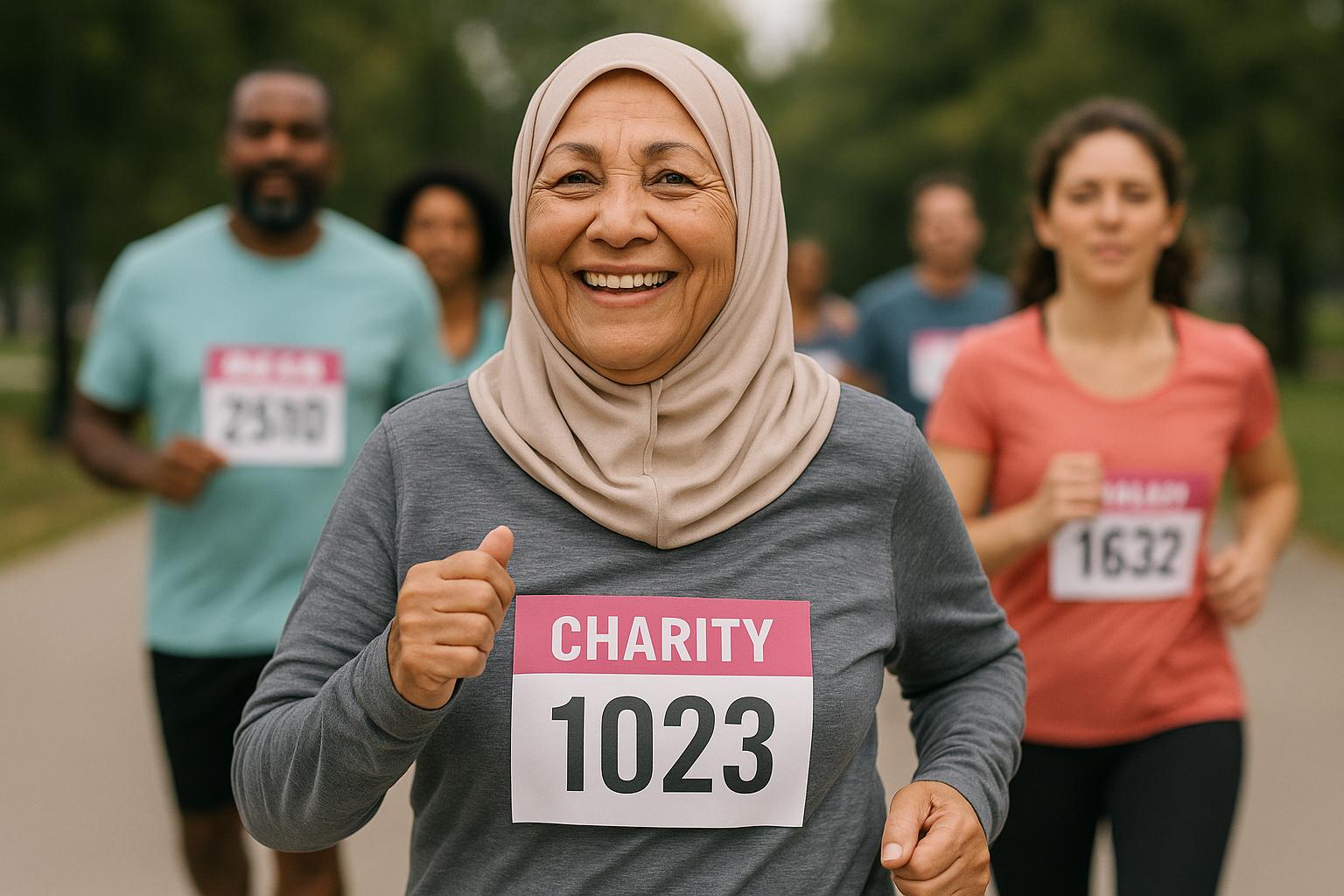A prominent mosque in East London has reversed its controversial decision to exclude women and girls over the age of 12 from participating in its annual charity fun run, following intense scrutiny and an investigation prompted by media exposure. The event, which took place last month, was initially described as "inclusive" and "family-friendly," yet organisers maintained a firm ban on female teenagers and women joining the 5km race. This policy was widely condemned as discriminatory and regressive.
The restrictions came to light after The Mail on Sunday revealed the rules imposed by the East London Mosque, prompting an assessment by the UK's Equality and Human Rights Commission (EHRC). The watchdog’s subsequent intervention has now led the mosque to announce that women of all ages will be allowed to take part in next year’s event. According to an EHRC spokesperson, the investigation has been paused but the commission remains prepared to reopen inquiries should any further complaints arise.
Campaigners were swift in their condemnation of the original exclusion. Human rights advocate Aisha Ali-Khan criticised the mosque for what she described as a long-standing marginalisation of women in community activities, accusing leaders of operating in an "ivory tower" detached from accountability and damaging to religious values. Shadow Women and Equalities Minister Claire Coutinho also expressed dismay, calling the initial ban "appalling" and commending the media’s role in exposing the unfairness.
The charity run, formerly called Run 4 Your Mosque, has been held annually since 2012 within Tower Hamlets, a borough governed by the Aspire Party. The party's founder and local politician Lutfur Rahman, who was re-elected last year after being ousted for electoral fraud in 2015, defended the event at the time, asserting there was "no room for criticism" relating to the participation rules.
The controversy attracted broader political attention as Communities Secretary Steve Reed described the exclusion as "absolutely unacceptable" and expressed horror at the decision to bar females from the run. The EHRC’s investigation was aligned with these concerns, exploring potential breaches of equalities legislation. However, the mosque itself maintained that the event did not violate the Equality Act, while emphasising its commitment to supporting women and girls in other sporting and social activities.
In response to the backlash, Sufia Alam, a female leader at the East London Mosque, highlighted a nuanced perspective within the community. Speaking to The Guardian, she stressed that women in the area prefer women-only spaces and that the decision to restrict participation reflected low demand from females wanting to join such mixed events. Alam argued that women do not need to be "saved" by external intervention, asserting that they have agency and choice in their involvement with community activities.
This case, while seemingly resolved with the mosque's concession to allow full female participation next year, has nonetheless sparked ongoing debate about gender equality, community autonomy, and cultural norms within British Muslim communities. It also raises questions about the role of regulatory bodies like the EHRC in enforcing equalities law in religious and community spaces, particularly when incidents of exclusion have endured over several years without prior sanctions.
As the mosque prepares to host a more inclusive event in the future, activists continue to call for stronger accountability and transparency from community leaders to prevent a repeat of similar controversies. The EHRC reiterated its readiness to act if any fresh complaints are received, signalling its ongoing commitment to uphold equality standards.
📌 Reference Map:
- [1] (Daily Mail) - Paragraphs 1, 2, 3, 5, 8, 9, 10
- [2] (BBC) - Paragraphs 6, 8
- [3] (The Guardian) - Paragraph 7
- [4] (The Guardian) - Paragraph 6
- [5] (Guardian Nigeria) - Paragraph 6
- [6] (GB News) - Paragraph 6
- [7] (NDTV) - Paragraph 6
Source: Noah Wire Services
